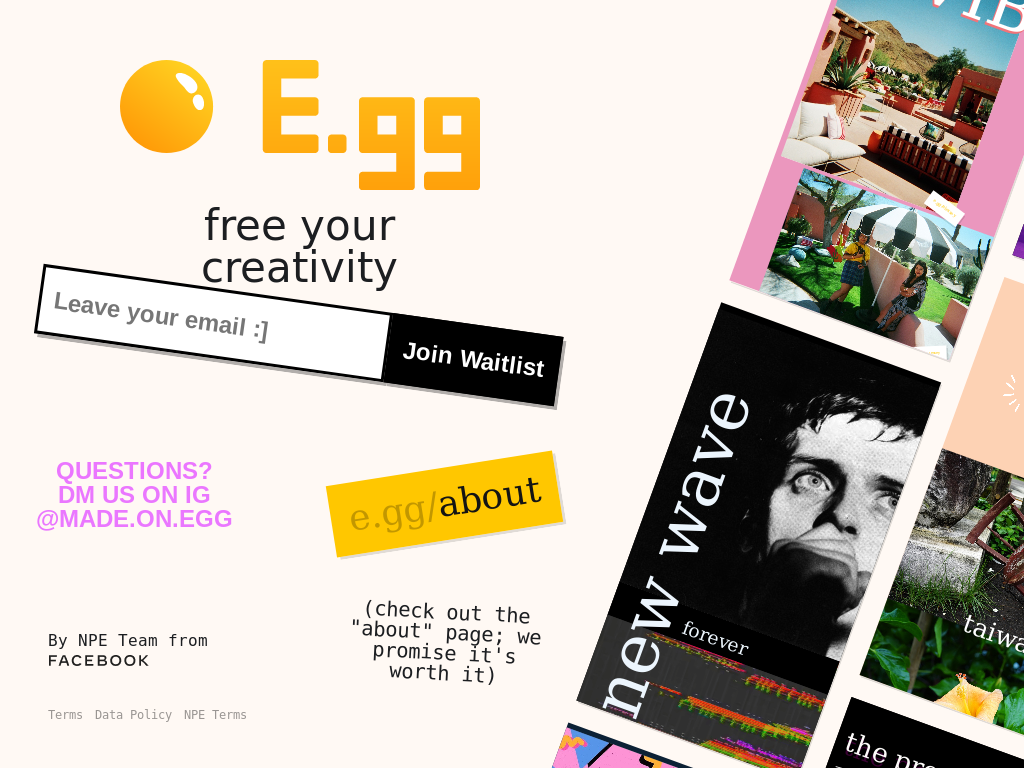Many of us remember with some nostalgia those years when the web was full of colors, gifs, texts in marquee and so many other details typical of the times when the explosive growth of the Internet began.
A new Facebook project seeks to rescue part of that essence, through a platform to create collages online, with a design proposal that is faithful to the nineties web pages.
This is e.gg, a platform created by the New Product Experimentation (NPE) team of Facebook, which consists of a small group of developers who, under the eaves of the company founded by Mark Zuckerberg, are dedicated to creating new and/or different experiences from those marked in the main roadmap of that social network and its associated services.

What this service offers is a blank canvas, which can be used to create collages or static pages (similar to a landing page), which can be designed and edited by uploading content such as text, static images and GIFs from their app, which at the moment is advertised only for iOS.
The aesthetic presented by this proposal is very faithful to the one that characterized in its time many web pages, such as those sites hosted by Geocities, usually created by Office or the first versions of Dreamweaver.
Despite appealing to nostalgia with this tribute to those small websites of yesteryear, in the presentation of e.gg their developers comment that the design presented only responds to the fact that they found it fun to do so. In passing they clarified that the intention of this project is not to create a platform focused on those memories, as they seek to provide a space for all types of content and visual styles.
In any case, the wink to the pages of this era of the Internet is justified by the spirit behind them: the strong sense of originality and belonging that fell on their creators.
The aim of this platform is to generate a space in which creative exploration can be given free rein, facilitating freedom of expression and positive interactions.
Under the principle that “creativity has its own, solitary reward”, the contents generated and shared through this platform will not have space for comments or any system of counting “I like” or something similar. In this way, it seeks to strengthen the creation of experimental content, following a logic that is opposed to the current canon of social networks.
The e.gg users when registering will have a user name that will define the URL of their profile. As a suffix, separated by a dot, the name of each canvas created will be added to this address, which can be shared freely on the web, without having to register on the platform or download any app to view it.
The elements that make up the collages created on an e.gg canvas can also be used by other members of the platform. The dynamic is similar to that of a reblog in Tumblr. In fact, from the internal panel of the application you can follow other users, to continue discovering new creations.
In this way, e.gg is outlined as an alternative to create presentation microsites, digital posters, postcards, lists, galleries and other content that is supported.
The project is not yet open to the public. In the meantime, a registration form is available to join the waiting list to access the iOS app.
You can find some examples of sites that can be created and more details about e.gg on their website.
